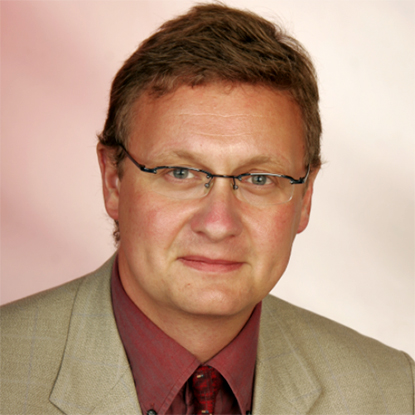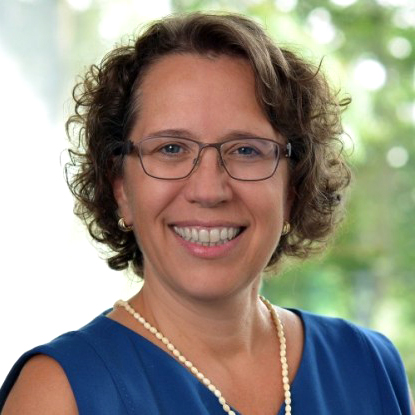| Side Spokesperson: | Prof. Dr. Marc Pfetsch |
| Funding period: | 07/2022–06/2026 |
| Website: | https://www.trr154.fau.de |
| Summary: | The purpose of TRR 154 is to provide answers to the questions and challenges of efficient gas supply by means of mathematical modeling, simulation and optimization, and thus to offer solutions at a new quality standard. In order to achieve this, new findings in different areas within mathematics, such as mathematical modeling, numerical analysis and simulation as well as integer, continuous and stochastic optimization are necessary. |
| Coordinator: | Prof. Dr.-Ing. Matthias Weigold |
| Funding period: | 05/2021–04/2026 |
| Website: | https://delta-darmstadt.de/ |
| Summary: | The Darmstadt Energy Lab for Technology in Application (DELTA) will operate as a model for the urban energy transition to demonstrate interacting energy-optimized neighborhoods. In the Reallabor DELTA, the aim is to demonstrate that the technically proven potentials for increasing the energy efficiency and flexibility of urban quarters are economically feasible and that these are also socially accepted. |
| Website: | https://www.kopernikus-projekte.de/en |
| Summary: | In the Kopernikus projects, technologies and concepts for society, business and industry are being researched and developed so that Germany can achieve its climate goals by 2045. The research initiatives are funded by the Federal Ministry of Education and Research. Three members of the Research Field Energy and Environment are involved in the Kopernikus projects. Prof Dr Matthias Weigold is involved in the Kopernikus project SynErgie. This project is investigating how industrial companies can temporarily ramp up or ramp down their processes depending on the availability of electricity in order to better adapt their requirements to the volatility of renewable energies. Prof Dr Stefan Niessen is involved in the Kopernikus project ENSURE. ENSURE has set itself the task of developing a systemic approach and building blocks for future electricity supply grids. Prof Dr Michèle Knodt is involved in the Kopernikus project Ariadne. Ariadne focuses on researching and developing policy instruments for shaping the energy transition. The acceptance of the measures by society is taken into account and their participation is facilitated through dialogue. |
| Coordinator: | Prof. Christoph Kuhn |
| Funding period: | 10/2023-09/2028 |
| Website: | https://www.tu-darmstadt.de/eneff/eneff_campus |
| Summary: | In our interdisciplinary project EnEff: Campus Lichtwiese, we are looking at the university's electrical energy supply as well as its heating and cooling requirements. Comprehensive monitoring of the energy flows on campus forms the basis for a fundamental modernization strategy. |
| Contact person: | Prof. Dr.-Ing. Stephan Rinderknecht |
| Funding period: | 01/2024 bis 12/2025 |
| Summary: | The focus of B-SWIVT is the implementation of operational optimisation within a settlement with a sector-coupling energy system. This type of system is currently and in the future being sought in many cities to drive forward the energy transition in the heating, electricity and mobility sectors. These neighbourhoods can serve as active energy cells that exploit the potential for flexibility and load shifting on the electricity market. Using real data from the existing neighbourhood (SWIVT II implementation project), it is possible to optimise the operation of the sector-coupling energy system and thus support the city's climate protection goals. |
| Coordinator: | Prof. Dr. Marc Pfetsch |
| Funding period: | 11/2022–10/2025 |
| Website: | https://www.eins.tu-darmstadt.de/eins/projects/rodes |
| Summary: | Climate change poses major challenges for our society. In order to achieve the transformation to a climate-neutral energy supply, the energy systems must be massively expanded or converted. At the same time, permissible operation must be ensured at all times. One building block for mastering these challenges is model-based expansion and conversion planning in combination with integrated operational planning. |
| Coordinator: | Prof. Dr. Florian Steinke |
| Funding period: | 05/2023 – 04/2026 |
| Website: | https://www.eins.tu-darmstadt.de/eins/projects/cyberstress |
| Summary: | The CyberStress project deals with the question of how the resilience of the power grid to cyber-attacks can be defined, measured, monitored and enforced. Therefore model-based stress tests will be developed and the resilience of the energy system will be tested using various test scenarios. |
| Side Spokesperson: | Prof. Dr.-Ing. Christian Beidl |
| Funding period: | 08/2022–07/2025 |
| Website: | https://evtrailer.de/ |
| Summary | In the joint research project “Electric drive cooperation and energy system for heavy commercial vehicles – evTrailer2”, a consortium from industry and science is working on advances in the driving safety of heavy articulated lorries weighing over twelve tonnes. The project also aims to achieve a further reduction in CO2 emissions by integrating on-board solar modules, autonomous manoeuvring without a tractor unit, for example in a trailer park, and preparing the energy storage system for high-power charging at charging points or overhead lines. |
| Coordinator: | Prof. Dr.-Ing. Matthias Weigold |
| Funding period: | 06/2021–05/2024 |
| Website: | https://www.ptw.tu-darmstadt.de/forschung_ptw/eta/aktuelle_projekte_eta/ki4eta/index.en.jsp |
| Summary: | The aim of the KI4ETA research project is to make a disruptive contribution to the way to CO2-free production of the future. To achieve this, the energy efficiency gap in industry must be closed, which describes the difference between technically feasible and previously realized potential. In the KI4ETA project, an integrated, platform-based approach based on artificial intelligence (AI) is being pursued. |
| Coordinator: | Prof. Dr.-Ing.Stephan Rinderknecht |
| Funding period: | 04/2021–03/2024 |
| Website: | https://www.ew.tu-darmstadt.de/ew_forschung/ew_aktuelle_projekte/verbundprojekt_de4lora/de4lora.de.jsp |
| Summary | The aim of the project is to develop a universal and hybrid drive concept for passenger cars that combines ecological and economic attractiveness. In doing so, the advantages of long-distance capable all-electric vehicles (BEV) as well as strengths of current plug-in hybrid vehicles (PHEV) are considered. |
| Spokesperson: | Prof. Dr. Florian Steinke |
| Funding period: | 01/2020–12/2023 |
| Website: | https://www.eins.tu-darmstadt.de/eins/projects/eneffwaerme-meflexwaerme |
| Summary: | Because of the limited potential of renewable heat sources, low-CO2 heat will be provided by electrified heat generation (power-to-heat). Since heat can be stored relatively and inexpensive, this creates a large potential for flexibility in electricity demand. An essential tool for gaining this flexibility potential is provided by heating networks. The EnEff:Wärme – MeFlexWärme project is developing new concepts and methods for the three research areas “Network Transparency”, “flexibility control” and “mathematical optimization”, each in relation to heating networks. |
| Coordinator: | Prof. Dr.-Ing. Stephan Rinderknecht |
| Funding period: | 12/2019–06/2023 |
| Website: | https://www.ims.tu-darmstadt.de/forschung_ims/energie_systeme/projekte_5/korev_sms_ii |
| Summary: | Flywheel mass storage systems (SMS) can play a key role in the energy transition. They enable a secure and affordable power supply through advantages in the number of cycles that can be achieved at low power-specific costs. The aim is to develop the technology to an energy storage system closely to the market. Therefore, the reduction in acquisition costs and an increase in availability is considered so far. However, the improvement in the efficiency of the innovative, highly integrated system is also necessary. |



